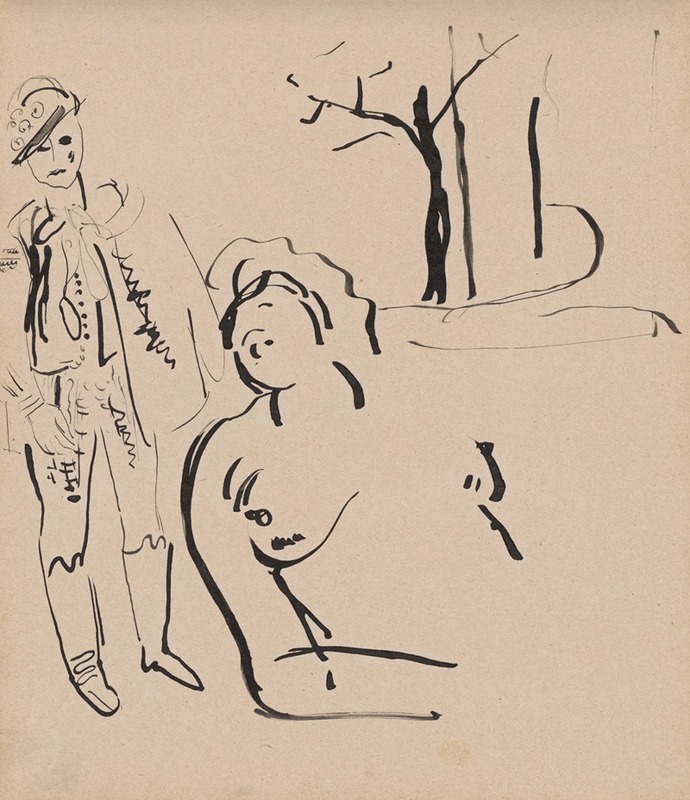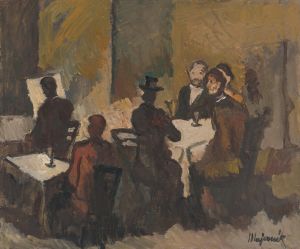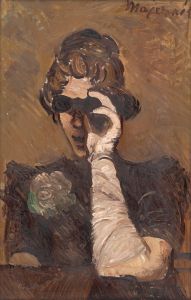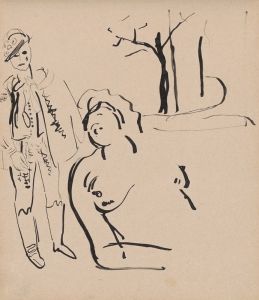
Skicár
A hand-painted replica of Cyprián Majerník’s masterpiece Skicár, meticulously crafted by professional artists to capture the true essence of the original. Each piece is created with museum-quality canvas and rare mineral pigments, carefully painted by experienced artists with delicate brushstrokes and rich, layered colors to perfectly recreate the texture of the original artwork. Unlike machine-printed reproductions, this hand-painted version brings the painting to life, infused with the artist’s emotions and skill in every stroke. Whether for personal collection or home decoration, it instantly elevates the artistic atmosphere of any space.
Cyprián Majerník was a Slovak painter known for his poignant and expressive works, often reflecting the socio-political turmoil of his time. One of his notable paintings is "Skicár," although detailed information about this specific work is limited. Majerník's oeuvre generally captures the existential struggles and emotional depth of the human condition, often influenced by the events leading up to and during World War II.
Majerník was born on November 24, 1909, in Veľké Kostoľany, then part of the Austro-Hungarian Empire. He studied at the Academy of Fine Arts in Prague, where he was influenced by the modernist movements of the early 20th century, including Expressionism and Surrealism. His works often depict themes of alienation, despair, and the absurdity of war, resonating with the broader European art movements of his time.
The painting "Skicár" fits within Majerník's broader artistic narrative, characterized by a somber palette and emotive brushwork. While specific details about "Skicár" are scarce, it is likely that the painting reflects Majerník's typical style, which often includes distorted figures and dreamlike landscapes. These elements serve to convey the psychological and emotional states of his subjects, often mirroring the artist's own experiences and the collective anxieties of his era.
Majerník's work is often associated with the Central European avant-garde, and he was part of a generation of artists who grappled with the rapid changes and upheavals of the early 20th century. His paintings frequently explore the tension between individual identity and the broader forces of history, a theme that resonates with the existentialist philosophy that gained prominence during and after the war.
Despite the challenges of his time, including the rise of fascism and the outbreak of World War II, Majerník continued to produce art that spoke to the resilience of the human spirit. His works are marked by a deep empathy for the marginalized and the oppressed, and he often used his art as a form of social commentary.
Majerník's career was tragically cut short when he died at the age of 34 on July 4, 1945, in Prague. Despite his brief life, he left a significant impact on Slovak and European art, and his works continue to be studied and appreciated for their emotional depth and historical significance.
In summary, while specific information about the painting "Skicár" is limited, it can be contextualized within Cyprián Majerník's broader body of work, which is characterized by its exploration of existential themes and its reflection of the turbulent historical context of the early 20th century. His legacy endures through his powerful and evocative paintings, which continue to resonate with audiences today.


















